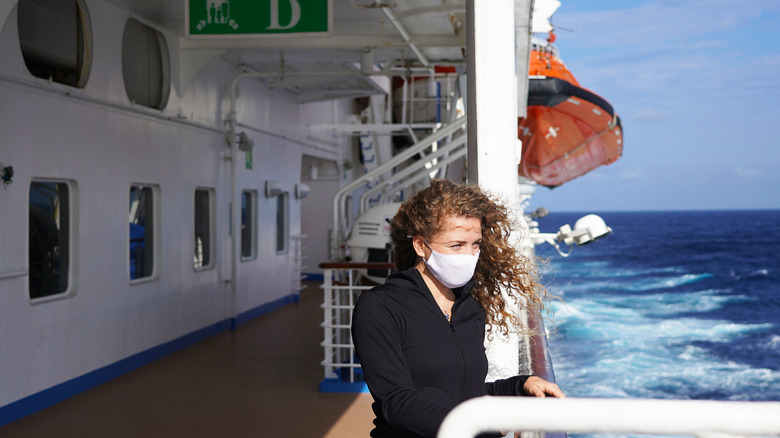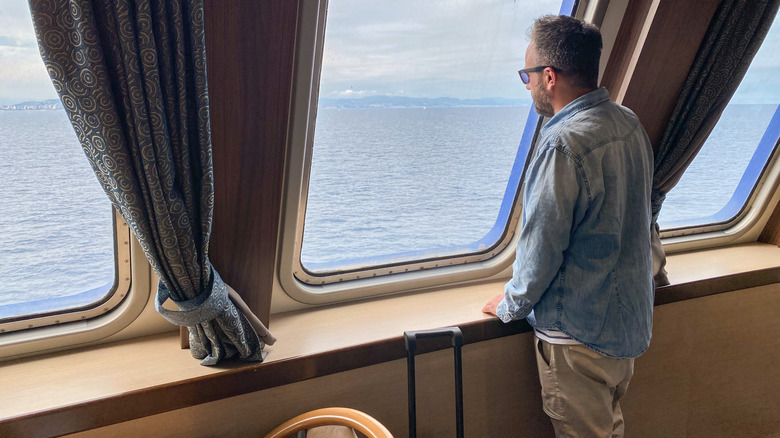What Happens When You Test Positive For COVID On Board A Cruise Ship?
A cruise might feel like a floating paradise — just you, your cozy cabin, and a steady flow of margaritas on the pool deck. But if you think that means you're in some kind of protective bubble, think again. Unless you're off exploring a port of call, you're basically trapped in a giant floating petri dish with thousands of other people. And that makes catching something way easier than you'd like. No, we're not just talking about the occasional bout of seasickness (though that's unpleasant enough). We're talking about the notorious norovirus, infamous for its cruise outbreaks, along with cruise ship food poisoning, colds, and, of course, COVID-19. If it's easy to catch on land, imagine how quickly it can spread in a confined space. The good news? Cruise lines have protocols in place so you're not completely left to fend for yourself.
Now, while testing positive for COVID isn't ideal, it doesn't mean you'll be immediately kicked off the ship. Cruise lines only remove passengers in serious medical situations where their on-board facilities aren't enough. If you do catch COVID, your best bet is to isolate and inform the crew — they've seen it all and know what to do. You can also visit the ship's medical center for symptom management. "We have basic equipment on board to treat common injuries or illnesses, which includes urgent, emergent, and acute exacerbations of chronic conditions that patients may present with and require attention while onboard," Dr. Calvin B. Johnson, the chief medical officer from Royal Caribbean Group, told Escape. "When a patient arrives to our medical facilities, we assess the level of care needed, and determine if we will continue to treat onboard or plan to transfer the patient shoreside to ensure they receive the appropriate level of care."
You may be isolated or moved to a different room on a cruise
Cruise lines have their own playbook when it comes to handling passengers with COVID-19, but the general rule is pretty straightforward: If you test positive, expect to isolate. Celebrity Cruises, for instance, states that sick guests must inform the staff so they can arrange either a stateroom visit or a tele-consultation. From there, you might be told to quarantine — or, if things escalate, be relocated to a room closer to the ship's infirmary for easier monitoring. Royal Caribbean has a similar approach, while Norwegian Cruise Line takes it a step further by throwing contact tracing into the mix to minimize on-board outbreaks.
That said, the Centers for Disease Control and Prevention has updated its guidelines, now recommending at least 24 hours of isolation instead of the previous five days — as long as you're feeling better and don't have a fever. Whether cruise lines will actually follow suit? That's anyone's guess. Bottom line: If you catch COVID on board, do yourself (and everyone else) a favor and report it so you know what happens next.
One thing that's crystal clear, however, is any medical care you receive at sea is coming straight out of your wallet. Disney Cruise Line, for example, explicitly states that on-board medical treatment is considered "care outside of home country," meaning your regular health insurance likely won't cover a dime. Therefore, if you're planning to set sail now or anytime in the future, make sure your travel insurance is as seaworthy as your cruise ship. It may even be worth it to get cruise insurance with coverage for medical care, just in case.

